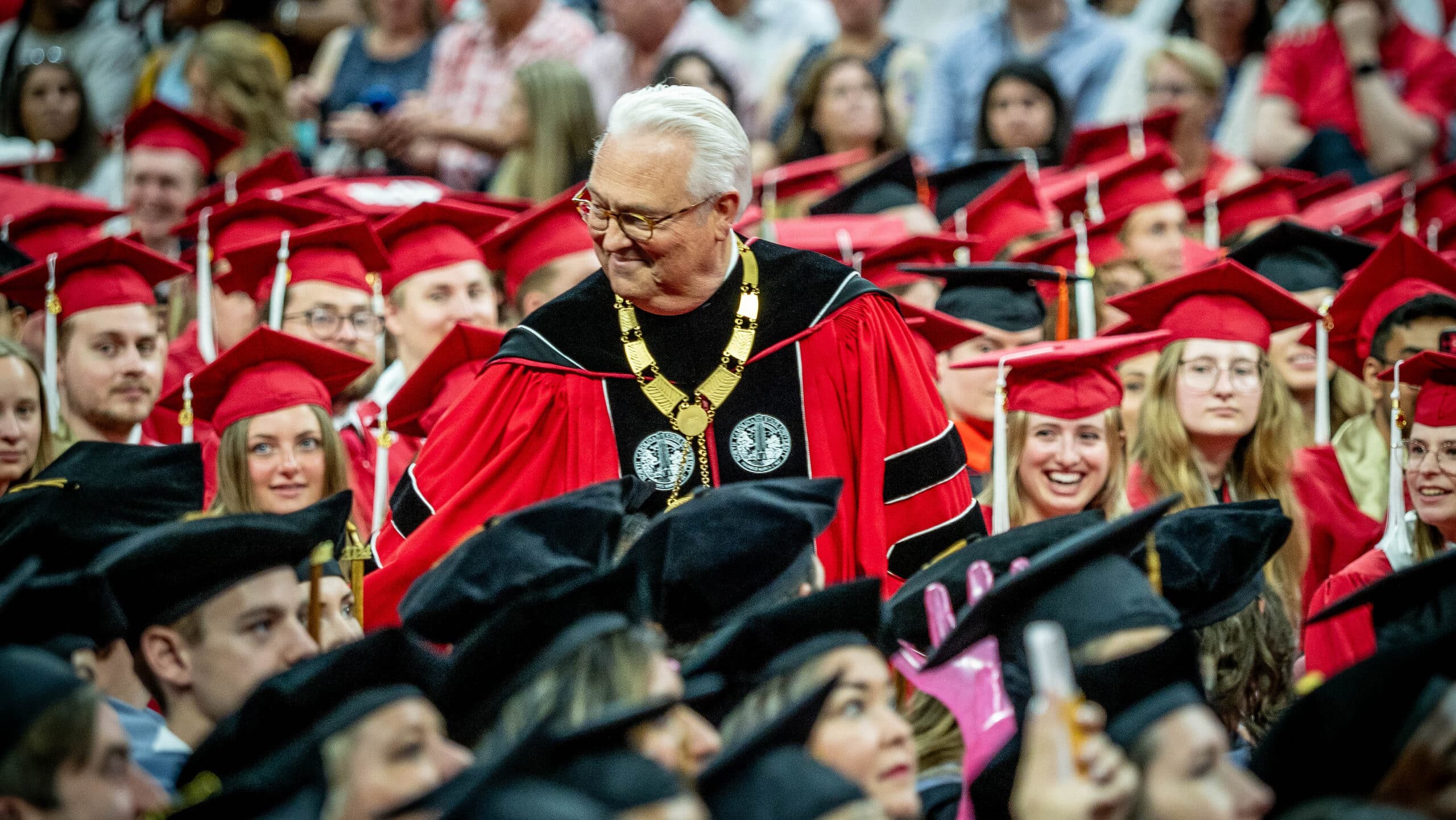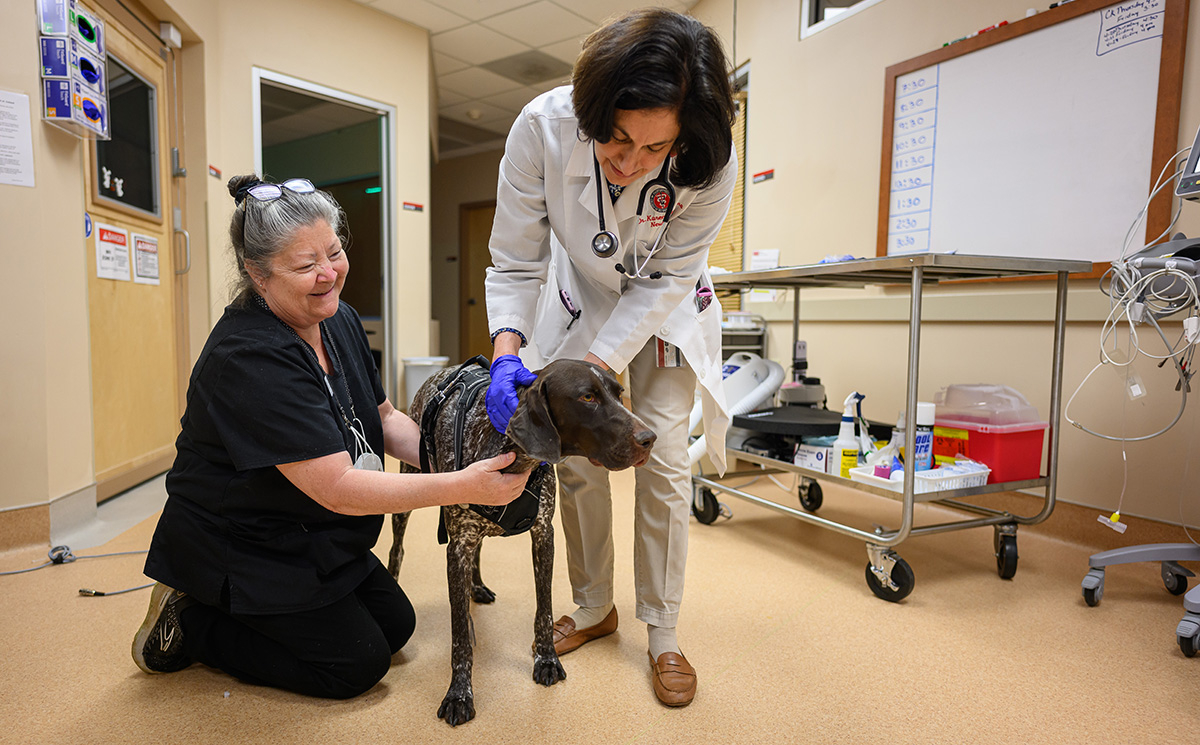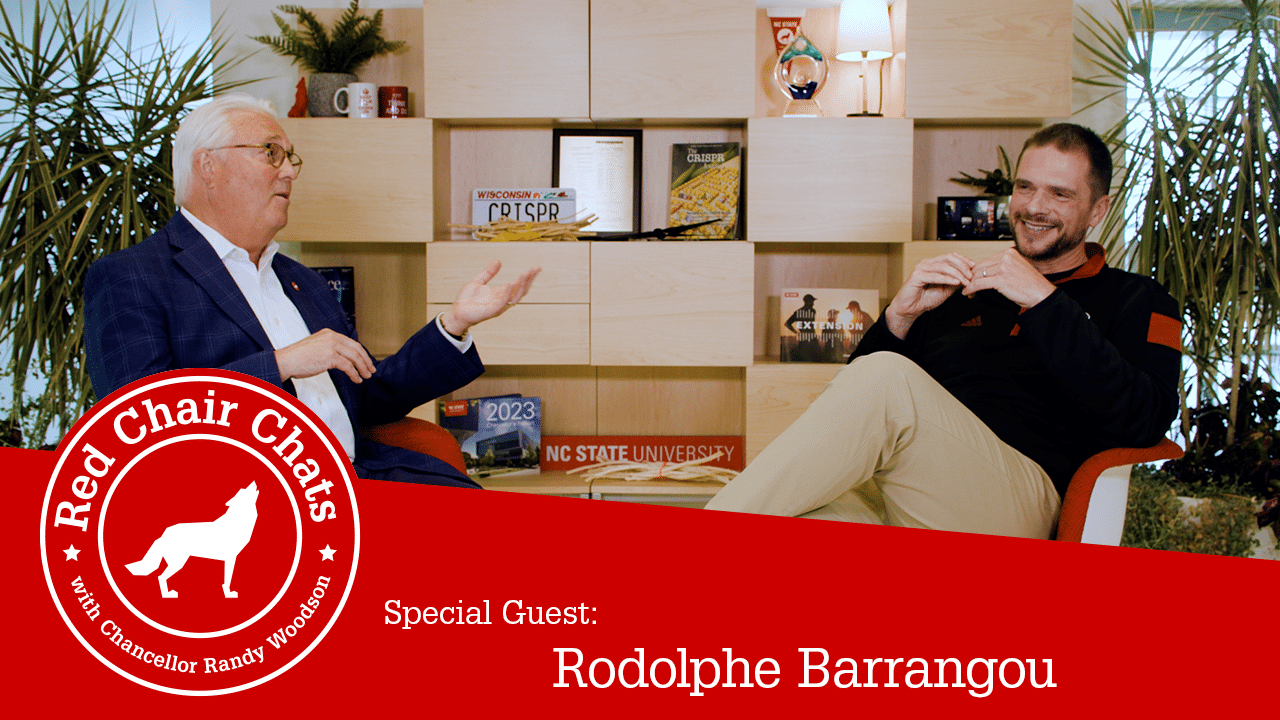Athletics Is Topic at Faculty Senate
When NC State athletics director Debbie Yow and football coach Dave Doeren went before the school’s Faculty Senate on Tuesday afternoon, they were clearly prepared for the academic-oriented questions that were thrown their way by the governing body.
Yow gave a 28-slide PowerPoint presentation about the structure of the department, detailing the $63.5 million budget that supports 250 full- and part-time employees, 550 student athletes and 23 varsity sports. She also detailed the $11.6 million returned to the university in scholarships, administrative fees, trademark licensing and bookstore merchandise sales at athletics events, as well as payments for utilities, campus safety and transportation.
She was eager to take questions from the senate, most notably when Mike Devetsikiotis, a professor of mechanical and electrical engineering, asked about the current academic and athletic issues that have hovered over UNC-Chapel Hill essentially since Yow arrived at NC State in 2010.
“I have nothing to say about what is happening at UNC,” said Yow, in her third visit to the senate since she took over the department in 2010. “What I have shown you is what we are doing and how we are doing things here. If we have an issue, we will do everything we can do to address it quickly. We will not string anything out.
“We have the appropriate people in place to handle whatever happens.”
Yow detailed for the senate her expectations on how she and her staff have established a culture of integrity and how they reinforce that culture through appropriate academic and athletic screenings in recruiting, discipline and accountability.
“I can promise you this: if something does happen here, it will not be systemic because we have a system in place to address issues,” Yow said. “If and when we ever get an issue, we will not spend four years with it. We will be professional and we will take action. We will figure it out and we will be part of the solution.
“We have convinced our student-athletes that we cannot save them if they do these things outside the system we have. They have to do these things to compete.”
Doeren, making his first appearance in front of the senate, talked about his background, which included earning Academic All-American honors as a non-scholarship player at Drake, where he earned a degree in biology.
Fielding a question from a senator, Doeren tried to break down the complexities of what would be necessary to pay college football players, a movement in the spotlight at the annual NCAA convention last month and as part of an antitrust class-action lawsuit against the NCAA.
“It’s a tough question,” Doeren said. “From a fundamental standpoint, I can see both sides of the issue. I paid my own way through college. I didn’t have a scholarship, so I feel like [getting] that scholarship is pretty good.
“I also understand that I wasn’t in video games or having my likeness generate millions of dollars. But there are only two sports that generate revenue and there are a lot of athletes and Title IX involved. If you pay football players, you have to pay everybody. I don’t know how you do that economically. I see merits to both sides.”
Doeren, who finished with a 3-9 record in his first season at NC State, also talked about his team going forward. He reported an improvement of the overall grade point average from 2.18 when he arrived last December to 2.78 last spring. The number fluctuates from spring to fall, when the team is in season, but his goal is to have an overall team GPA above 2.5 for an academic year.
His announcement that 12 players with one year of eligibility remaining will graduate by the end of the two summer sessions was met with approval, as did the announcement that NC State had six Academic All-ACC selections in football, second only to Duke among league schools.
He also added that his team did more than 1,600 hours of community service last fall and spring.
Faculty chair-elect candidates
Dennis Daley and Jeannette Moore announced their intentions to run for chair-elect to replace current chair David Zonderman, who has one year remaining in his two-year term.
Daley, a professor of public policy who is the current secretary of the faculty, is a past faculty chair. Moore, a professor of animal science, has been a member of the senate since 2010.
Next meeting
The Faculty Senate will not have a meeting on March 8, which is the date of the general faculty meeting in the Coastal Ballroom of the new Talley Student Union. The faculty meeting will begin at 3 p.m.
The next regularly scheduled Faculty Senate meeting will be March 18 in the faculty senate chambers at the D.H. Hill Library.
- Categories:


